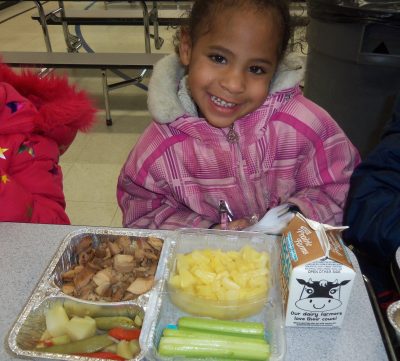Child and Adult Care Food Program
Your after-school program may be able to apply for funding for after-school snacks or suppers.
Read More Take a look around your school lunchroom. Are students eating all or most of the food on their tray? How much food gets thrown out on a daily basis? The United States Department of Agriculture reports that in the United States, food waste is estimated at between 30-40 percent of the food supply. Because many schools serve multiple meals to students each day, schools are a great place to reduce, recover and recycle food waste.
Take a look around your school lunchroom. Are students eating all or most of the food on their tray? How much food gets thrown out on a daily basis? The United States Department of Agriculture reports that in the United States, food waste is estimated at between 30-40 percent of the food supply. Because many schools serve multiple meals to students each day, schools are a great place to reduce, recover and recycle food waste.
Schools have a unique opportunity to significantly minimize food waste by making a few simple changes on how food waste is handled. Take action with some of these strategies:
Start a club focused on reducing food waste. Work with students to conduct food waste audits or to serve as monitors during lunch to make sure waste is being put in the correct bin.
Teach students about the issue of food waste in science or social studies lessons.
Ask a volunteer to lead and supervise an after-school club focused on food waste.
Utilize the support of volunteers to determine non-profit partners to work with to donate excess food and schedule deliveries.
Categories: Nutrition & Healthy Eating, At Home, At School, Digital Resource